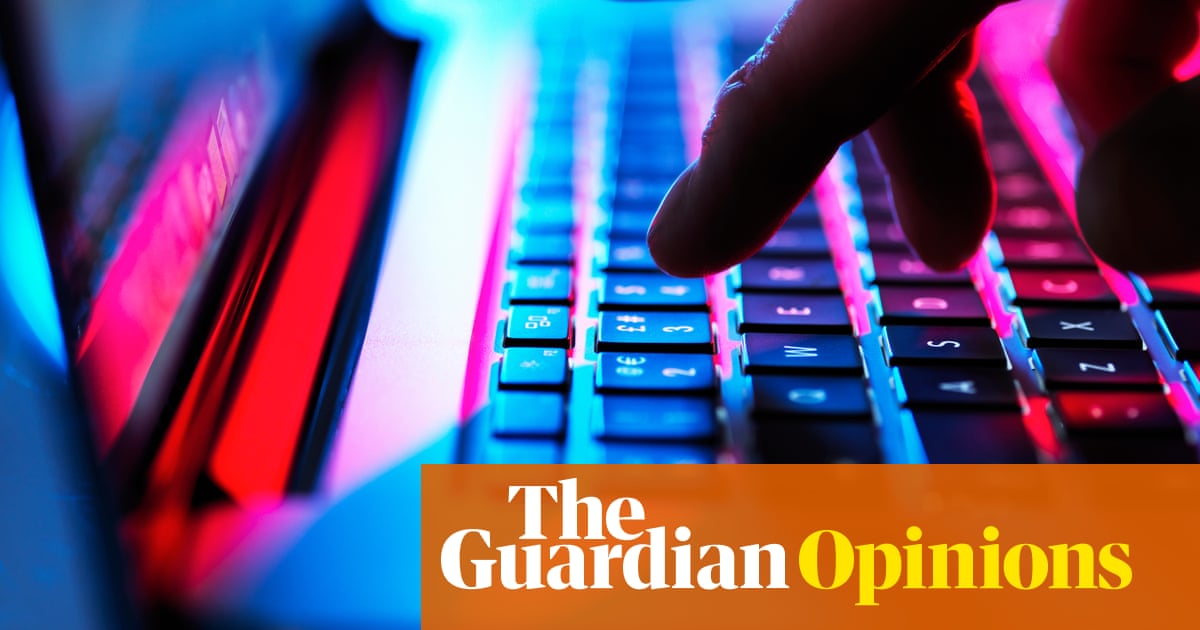Media
Munk Debates – Noam Cohen: Social media is dangerous and it needs to be regulated – National Post

The following was adapted from remarks recently delivered on a Munk Debates podcast: “Be it resolved, social media is a force for good in the world.”
Social media is not a force for good in society. That doesn’t mean that communicating is bad and being connected is bad. It means the way social communication is being run by a handful of companies has been bad for society. Recently, there was a memo that came out that was written by one of Mark Zuckerberg’s top deputies, Andy Bosworth, where he tried to defend Facebook against recent criticisms. The best he came up with was “it’s no worse than a company that uses sugar to get people to buy their product.” He also says in the same memo that Facebook got Donald Trump elected.
If Jeff Jarvis were to concede that one point which Facebook itself claims, that Facebook got Donald Trump elected, wouldn’t that be an argument that Facebook is one example of social media in our society that is a force for bad? Facebook has an algorithm that encourages Fox News to be read by people who made it clear they want Fox News’ lies to be what they read; is that not an indictment of Facebook? Would that be something that would be a social negative? If they did something by design that let more Fox News be read by people who are primed to believe it, wouldn’t you agree that is a bad thing?
A Facebook sign is seen at the China International Import Expo in Shanghai on Nov. 6, 2019.
These companies have chosen not to engage. They’ve chosen not to make tough decisions about how to run their companies well. They’ve chosen to say that they don’t care about the social impact. There are companies that care about social impact, who care about whether Donald Trump is lying in his ads, whether he is suppressing the black vote. Yet social media companies are saying, “we’re not going to engage.” That’s too dangerous. We’ve always believed the companies should have a social role in our society and they should not be making up the rules. Now we find ourselves in a situation where we have entrusted this vitally important tool to a bunch of inept people who care more about making money than social responsibility.
The social network platforms grew without any kind of thought towards regulation. They have gained unprecedented power and control and chosen to behave in a laissez-faire libertarian approach. I don’t want to live in a world that is so libertarian, that is extreme in its idea of freedom, that no one should care what you’re doing. You should care what your neighbour is doing. We all have a stake in each other. I’m arguing for a company that cares about society and social good.
They have gained unprecedented power and control
The U.S. government has failed to break up these monopolies. If we were to implement a regulated social network system with genuine competition, if we could break up Silicon Valley and bring them into line, if people could own their own data, I believe social media would be transformed into a force for good in the world. We can choose to have a decent internet with rules and smaller companies. Yet right now the opposite is happening. We as a society have allowed this miserable system to take over because we fetishize the idea of not having any rules. And that is a recipe for disaster.
Noam Cohen is a journalist and the author of “The Know-It-Alls: The Rise of Silicon Valley as a Political Powerhouse and Social Wrecking Ball.” He is an Ideas columnist for Wired magazine. Before that, he wrote the Link by Link column for The New York Times, producing some of the earliest articles about Wikipedia, Bitcoin, Wikileaks and Twitter.
Media
The media industry is dying – but I can still get paid to train AI to replace me – The Guardian


Say what you like about the Germans, you can always count on them to find just the right word for anything. Take “weltschmerz”, for example, which roughly translates to “world pain”. It signifies despair at the suffering in the world – and a deep anguish that stems from knowing that a better world is possible. Is there a more apt encapsulation of the current moment?
For the past six months I, like many others, have been suffering from an acute case of weltschmerz. As someone of Palestinian heritage I have been weighed down by survivor’s guilt as I’ve watched the unfolding genocide in Gaza. For a while, I didn’t have the emotional energy to write. The only way I could get out of bed and make it through the day was by avoiding the news completely. Which … isn’t an ideal scenario when you largely write about the news for a living. So, at one point, I decided on a career pivot and applied for various non-writing jobs, including one at a dog food manufacturer. Reader, I was rejected. In fact, I didn’t even make it to the first round of interviews; I was humbled by a dog’s dinner.
Obviously, I am writing again now. But for practical purposes I keep an eye on what else is out there. The media industry, after all, seems to be in freefall; it’s always good to try to secure a parachute, just in case. And, the other day, one seemed to present itself to me in my LinkedIn messages. According to an automated missive from an AI company, I have the perfect set of skills to help them write the first draft of AI history. I could, the generic message enthused, get “up to $15 [£12] an hour”, to coach an AI model “by assessing the quality of AI-generated writing … and crafting original responses to prompts”.
In other words: I could get paid less than the New York minimum wage to train an AI model to take over my job. Is there a German word to describe that particular situation, I wonder? I’ll have to ask ChatGPT.
Arwa Mahdawi is a Guardian columnist
Media
Social media use increases weight-related bullying risk, study says – Global News
[unable to retrieve full-text content]
Social media use increases weight-related bullying risk, study says Global News





Source link
Media
Georgia’s parliament votes to approve so-called ‘Russian law’ targeting media in first reading – CityNews Kitchener


TBILISI, Georgia (AP) — Georgia’s parliament has voted in the first reading to approve a proposed law that would require media and non-commercial organizations to register as being under foreign influence if they receive more than 20% of their funding from abroad.
Opponents say the proposal would obstruct Georgia’s long-sought prospects of joining the European Union. They denounce it as “the Russian law” because Moscow uses similar legislation to stigmatize independent news media and organizations seen as being at odds with the Kremlin.
“If it is adopted, it will bring Georgia in line with Russia, Kazakhstan and Belarus and those countries where human rights are trampled. It will destroy Georgia’s European path,” said Giorgi Rukhadze, founder of the Georgian Strategic Analysis Center.
Although Georgian President Salome Zourabichvili would veto the law if it is passed by parliament in the third reading, the ruling party can override the veto by collecting 76 votes. Then the parliament speaker can sign it into law.
The bill is nearly identical to a proposal that the governing party was pressured to withdraw last year after large street protests. Police in the capital, Tbilisi, used tear gas Tuesday to break up a large demonstration outside the parliament.
The only change in wording from the previous draft law says non-commercial organizations and news media that receive 20% or more of their funding from overseas would have to register as “pursuing the interests of a foreign power.” The previous draft law said “agents of foreign influence.”
Zaza Bibilashvili with the civil society group Chavchavadze Center called the vote on the law an “existential choice.”
He suggested it would create an Iron Curtain between Georgia and the EU, calling it a way to keep Georgia “in the Russian sphere of influence and away from Europe.”
The Associated Press
-



 Sports23 hours ago
Sports23 hours agoTeam Canada’s Olympics looks designed by Lululemon
-



 Tech15 hours ago
Tech15 hours agoiPhone 15 Pro Desperado Mafia model launched at over ₹6.5 lakh- All details about this luxury iPhone from Caviar – HT Tech
-
Business22 hours ago
Firefighters battle wildfire near Edson, Alta., after natural gas line rupture – CBC.ca
-



 Sports15 hours ago
Sports15 hours agoLululemon unveils Canada's official Olympic kit for the Paris games – National Post
-



 Investment23 hours ago
Investment23 hours agoWall Street bosses cheer investment banking gains but stay cautious
-



 Politics21 hours ago
Politics21 hours agoTrump gave MAGA politicians permission to move left on abortion. Some are taking it. – Semafor
-



 Science18 hours ago
Science18 hours agoAstronomers discover Milky Way's heaviest known black hole – Xinhua
-



 Politics22 hours ago
Politics22 hours agoAnti-Trump Republican Larry Hogan navigates dangerous political terrain in pivotal Senate contest – Toronto Star













